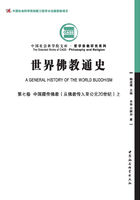THE LIKENESS OF GOD
1. GOD IS COURAGE
Now having set down what those who profess the new religion regard as the chief misconceptions of God, having put these systems of ideas aside from our explanations, the path is cleared for the statement of what God is. Since language springs entirely from material, spatial things, there is always an element of metaphor in theological statement. So that I have not called this chapter the Nature of God, but the Likeness of God.
And firstly, GOD IS COURAGE.
2. GOD IS A PERSON
And next GOD IS A PERSON.
Upon this point those who are beginning to profess modern religion are very insistent. It is, they declare, the central article, the axis, of their religion. God is a person who can be known as one knows a friend, who can be served and who receives service, who partakes of our nature; who is, like us, a being in conflict with the unknown and the limitless and the forces of death; who values much that we value and is against much that we are pitted against.
He is our king to whom we must be loyal; he is our captain, and to know him is to have a direction in our lives. He feels us and knows us; he is helped and gladdened by us. He hopes and attempts. . . .
God is no abstraction nor trick of words, no Infinite. He is as real as a bayonet thrust or an embrace.
Now this is where those who have left the old creeds and come asking about the new realisations find their chief difficulty. They say, Show us this person; let us hear him. (If they listen to the silences within, presently they will hear him.) But when one argues, one finds oneself suddenly in the net of those ancient controversies between species and individual, between the one and the many, which arise out of the necessarily imperfect methods of the human mind. Upon these matters there has been much pregnant writing during the last half century. Such ideas as this writer has to offer are to be found in a previous little book of his, "First and Last Things," in which, writing as one without authority or specialisation in logic and philosophy, as an ordinary man vividly interested, for others in a like case, he was at some pains to elucidate the imperfections of this instrument of ours, this mind, by which we must seek and explain and reach up to God. Suffice it here to say that theological discussion may very easily become like the vision of a man with cataract, a mere projection of inherent imperfections. If we do not use our phraseology with a certain courage, and take that of those who are trying to convey their ideas to us with a certain politeness and charity, there is no end possible to any discussion in so subtle and intimate a matter as theology but assertions, denials, and wranglings. And about this word "person" it is necessary to be as clear and explicit as possible, though perfect clearness, a definition of mathematical sharpness, is by the very nature of the case impossible.
Now when we speak of a person or an individual we think typically of a man, and we forget that he was once an embryo and will presently decay; we forget that he came of two people and may beget many, that he has forgotten much and will forget more, that he can be confused, divided against himself, delirious, drunken, drugged, or asleep. On the contrary we are, in our hasty way of thinking of him, apt to suppose him continuous, definite, acting consistently and never forgetting. But only abstract and theoretical persons are like that. We couple with him the idea of a body. Indeed, in the common use of the word "person" there is more thought of body than of mind.
We speak of a lover possessing the person of his mistress. We speak of offences against the person as opposed to insults, libels, or offences against property. And the gods of primitive men and the earlier civilisations were quite of that quality of person. They were thought of as living in very splendid bodies and as acting consistently. If they were invisible in the ordinary world it was because they were aloof or because their "persons" were too splendid for weak human eyes. Moses was permitted a mitigated view of the person of the Hebrew God on Mount Horeb; and Semele, who insisted upon seeing Zeus in the glories that were sacred to Juno, was utterly consumed. The early Islamic conception of God, like the conception of most honest, simple Christians to-day, was clearly, in spite of the theologians, of a very exalted anthropomorphic personality away somewhere in Heaven. The personal appearance of the Christian God is described in The Revelation, and however much that description may be explained away by commentators as symbolical, it is certainly taken by most straightforward believers as a statement of concrete reality. Now if we are going to insist upon this primary meaning of person and individual, then certainly God as he is now conceived is not a person and not an individual.
The true God will never promenade an Eden or a Heaven, nor sit upon a throne.












